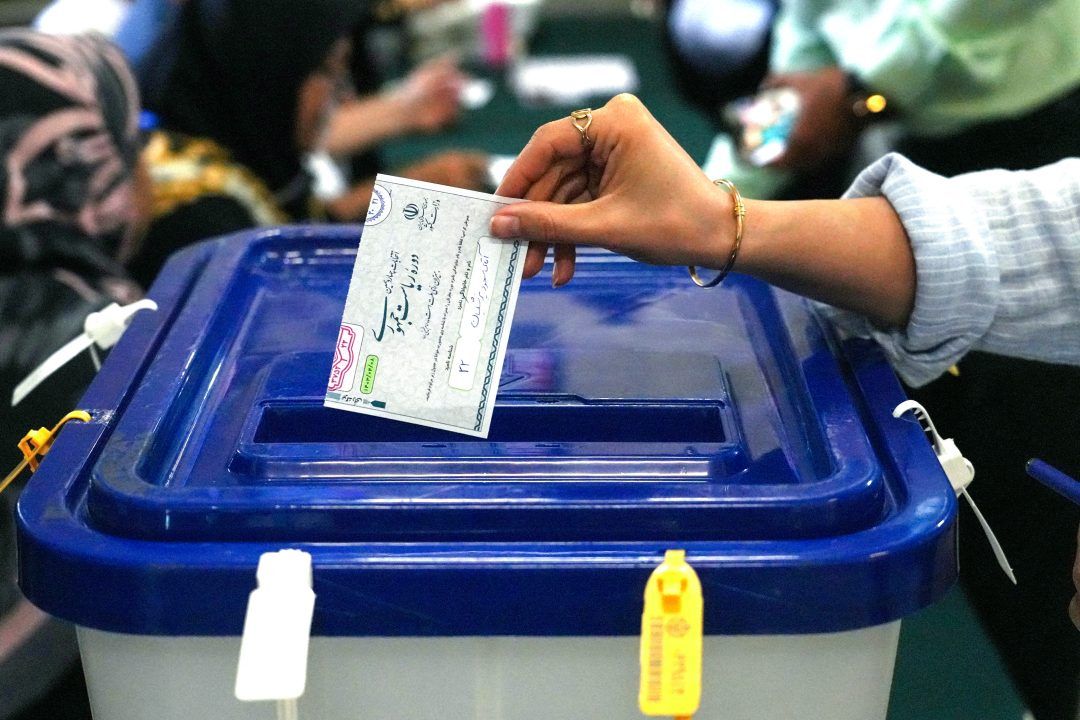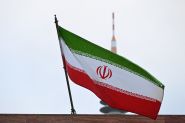- Home
- Middle East
- Iranian Reformist and Ultraconservative Qualify For Second Round

©RAHEB HOMAVANDI / AFP
Iran's sole reformist candidate Masoud Pezeshkian and ultraconservative Saeed Jalili have qualified for a runoff presidential election after leading in the first round, an official said on Saturday.
Pezeshkian got more than 10,400,000 votes and Jalili, a former nuclear negotiator, has more than 9,400,000, said Mohsen Eslami, spokesman of Iran's election authority.
"None of the candidates could garner the absolute majority of the votes, therefore, the first and second contenders who got the most votes will be referred" for the second round, scheduled for next Friday, Eslami told a press conference.
Out of around 61 million eligible voters, some 24,500,000 voters headed to the polls, he added, with a turnout of around 40 percent -- the lowest yet in the history of the Islamic republic.
Out of Iran's 13 previous presidential elections since the Islamic revolution in 1979, only one has led to runoffs in 2005.
The elections were brought forward by the death of president Ebrahim Raisi in a helicopter crash last month.
The Guardian Council, which vets electoral candidates in the Islamic republic, had originally approved six contenders.
In the 2021 elections that brought Raisi to power, the Council disqualified many reformists and moderates, prompting many voters to shun the polls.
Friday's vote took place amid heightened regional tensions over the Gaza war, a dispute with the West over Iran's nuclear programme and domestic discontent over the state of Iran's sanctions-hit economy.
Iran's supreme leader Ayatollah Ali Khamenei had called on people to participate in the vote.
Pezeshkian, 69, is a heart surgeon who has represented the northern city of Tabriz in parliament since 2008.
He served as health minister under Iran's last reformist president Mohammad Khatami, who held office from 1997 to 2005 and has endorsed Pezeshkian's bid in the current elections.
Pezeshkian criticised Raisi's government for a lack of transparency during nationwide protests triggered by the September 2022 death in police custody of Mahsa Amini.
Ultraconservative Jalili, Iran's former nuclear negotiator, has maintained his uncompromising anti-West stance.
The 58-year-old has held several senior positions in the Islamic republic, including in Khamenei's office in the early 2000s.
He is currently one of Khamenei's representatives in the Supreme National Security Council, Iran's highest security body.
Regardless of the result, Iran's next president will be in charge of applying state policy outlined by the supreme leader, who wields ultimate authority in the country.
Earlier, the local Tasnim news agency said militants in southeast Iran attacked a vehicle carrying ballot boxes in Sistan-Baluchistan province.
Two policemen were killed and others were injured in the attack, the agency added.
Ramin Khanizadeh and Payam Doost Mohamadi, with AFP
Pezeshkian got more than 10,400,000 votes and Jalili, a former nuclear negotiator, has more than 9,400,000, said Mohsen Eslami, spokesman of Iran's election authority.
"None of the candidates could garner the absolute majority of the votes, therefore, the first and second contenders who got the most votes will be referred" for the second round, scheduled for next Friday, Eslami told a press conference.
Out of around 61 million eligible voters, some 24,500,000 voters headed to the polls, he added, with a turnout of around 40 percent -- the lowest yet in the history of the Islamic republic.
Out of Iran's 13 previous presidential elections since the Islamic revolution in 1979, only one has led to runoffs in 2005.
The elections were brought forward by the death of president Ebrahim Raisi in a helicopter crash last month.
The Guardian Council, which vets electoral candidates in the Islamic republic, had originally approved six contenders.
In the 2021 elections that brought Raisi to power, the Council disqualified many reformists and moderates, prompting many voters to shun the polls.
Different camps
Friday's vote took place amid heightened regional tensions over the Gaza war, a dispute with the West over Iran's nuclear programme and domestic discontent over the state of Iran's sanctions-hit economy.
Iran's supreme leader Ayatollah Ali Khamenei had called on people to participate in the vote.
Pezeshkian, 69, is a heart surgeon who has represented the northern city of Tabriz in parliament since 2008.
He served as health minister under Iran's last reformist president Mohammad Khatami, who held office from 1997 to 2005 and has endorsed Pezeshkian's bid in the current elections.
Pezeshkian criticised Raisi's government for a lack of transparency during nationwide protests triggered by the September 2022 death in police custody of Mahsa Amini.
Ultraconservative Jalili, Iran's former nuclear negotiator, has maintained his uncompromising anti-West stance.
The 58-year-old has held several senior positions in the Islamic republic, including in Khamenei's office in the early 2000s.
He is currently one of Khamenei's representatives in the Supreme National Security Council, Iran's highest security body.
Regardless of the result, Iran's next president will be in charge of applying state policy outlined by the supreme leader, who wields ultimate authority in the country.
Earlier, the local Tasnim news agency said militants in southeast Iran attacked a vehicle carrying ballot boxes in Sistan-Baluchistan province.
Two policemen were killed and others were injured in the attack, the agency added.
Ramin Khanizadeh and Payam Doost Mohamadi, with AFP
Read more



Comments